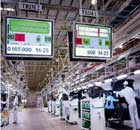Li Xing
Coping with US craft at Copenhagen
By Li Xing (China Daily)
Updated: 2009-12-18 06:57
 |
Large Medium Small |
Two groups of journalists - one from the United States and the other the United Kingdom - were already discussing the previous day's events when I reached the media center of the UN climate change conference, or COP15, at 7:30 am on Wednesday. And I couldn't help overhear their conversation, because they were discussing the conflicts of opinions between the US and China.
I've been to a few international conferences before, but never has China been so closely tied with the US. Never before have speeches by Chinese and American climate change negotiators been highlighted so much.
The New York Times front-page lead headline was blunt: "China and the US hit strident impasse at climate talks".
People eager to see a "fair, ambitious and legally binding" climate change deal think its outcome depends on not only the US, but also China.
During the midnight train ride from the Bella Center, the conference venue, to Central Station, I was even asked if there was a way to reduce the mistrust between the US and China so that they could compromise and help move the negotiations forward.
I also got a statement from Washington-based Natural Resources Defense Council on Wednesday with the key message: "The US and China each need to do one more thing to give one another, and rest of the world, the confidence to move forward in Copenhagen." That is, the US must assume the leadership "to help the world's most vulnerable", while China commits itself to "transparency and performance".
As an ardent environmentalist, I believe it is high time China took upon the duty of reducing its greenhouse gas (GHG) emissions and encouraging its urban residents to cut down their carbon footprint.
Although the dramatic rise in the number of private cars is fueling the economy, China should now prepare to stop tapping growth potential on the dirty path that developed countries have traveled. It should start to blaze new trails for green and sustainable development. But for that China needs new technologies and cooperative projects.
In fact, quite a number of American companies are doing just that. Among the Americans working in China to develop clean or renewable energy, Thomas R. Conlon from Hawaii has done a great deal to promote wind energy in villages in the central and northern parts of the country.
But it is disappointing to see that the US has neither committed itself to stringent GHG cuts nor is it willing to contribute to the projected adaptation funds to assist people in poorer countries to cope with global warming. Although US President Barack Obama has made a pledge, America as a country can always go back on it on the pretext of its Congress not approving of it.
US climate change envoy Todd Stern and its climate change negotiator have been very outspoken. The US wants China and other emerging economies to commit to legally binding emission reduction targets. It also wants to force them to accept some kind of international mechanism to measure, report and verify their emission-cut efforts.
Other American officials have helped fan the flame. Word leaked out that, while meeting with Chinese youth representatives in Copenhagen, US Commerce Secretary Gary Locke tried to teach them that they should turn off the lights when not needed.
Perhaps he doesn't know that the building that glows the most, powered by powerful lights, throughout the night in Beijing is none other than the new American embassy. One foreign envoy once told me that the building was the "ugliest" because it wasted the most energy.
As far as energy consumption and carbon dioxide (CO2) emissions are concerned, the US has little to be proud of. An average American's carbon footprint is four times more than that of a Chinese. The US was the largest GHG emitter for decades. It has a huge amount of CO2 debt to pay.
In a word, the US should not play the China card in order to shirk its own responsibilities.
E-mail: lixing@chinadaily.com.cn









